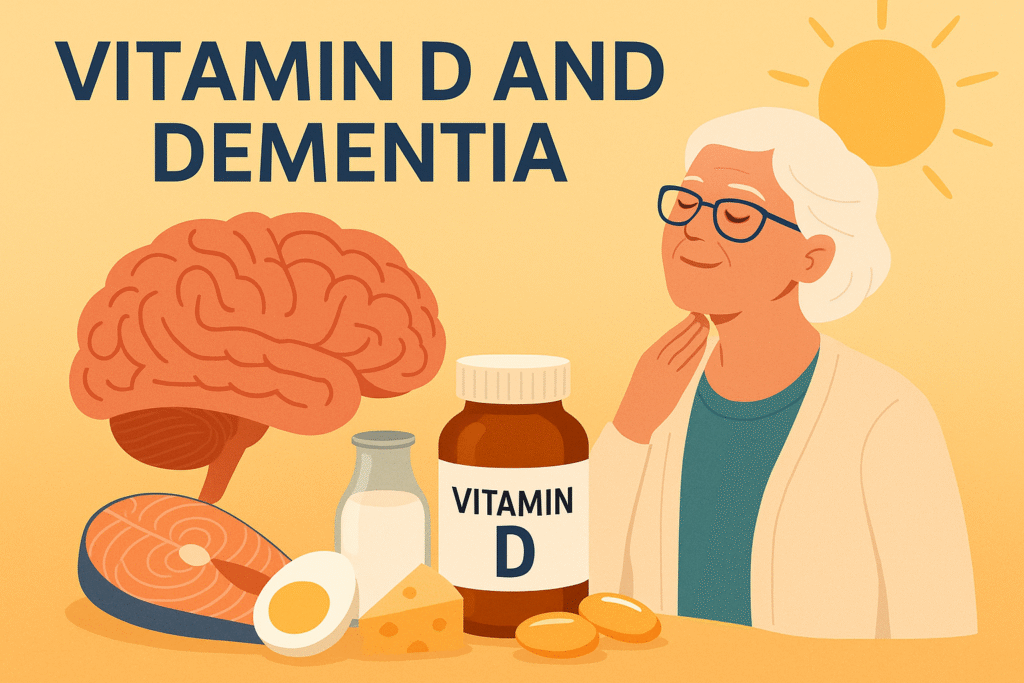Discover how vitamin D may lower your risk of dementia. Backed by research, learn why this essential nutrient is key to brain health and cognitive function.

Vitamin D, often referred to as the “sunshine vitamin,” is essential for bone health, immune function, and overall well-being. Recent research has highlighted its potential role in cognitive health, particularly in reducing the risk of dementia. This article delves into the connection between vitamin D and dementia, drawing insights from Dr. Rhonda Patrick’s presentation and recent scientific studies.
The Link Between Vitamin D and Dementia
A study published in Alzheimer’s & Dementia analyzed data from over 12,000 participants and found that vitamin D supplementation was associated with a 40% lower incidence of dementia compared to those who did not supplement. The protective effects were more pronounced in women and individuals with normal cognitive function at the study’s onset.
Dr. Rhonda Patrick emphasizes that vitamin D is converted into a steroid hormone that regulates numerous genes, many of which are involved in brain function. Deficiency in vitamin D can accelerate brain aging and increase the risk of neurodegenerative diseases.
Prevalence of Vitamin D Deficiency
Vitamin D deficiency is a global health concern. A pooled analysis of 7.9 million participants revealed that approximately 15.7% had serum 25-hydroxyvitamin D levels below 30 nmol/L, indicating deficiency. Factors contributing to this deficiency include limited sun exposure, use of sunscreen, skin pigmentation, age, and higher body fat percentages.
In India, studies have reported a high prevalence of vitamin D deficiency, ranging between 50% and 94% in various populations.
Mechanisms: How Vitamin D Supports Brain Health
Vitamin D plays several roles in maintaining cognitive function:
Amyloid Beta Clearance: It aids in the removal of amyloid beta, a protein associated with Alzheimer’s disease.
Reduction of Neuroinflammation: Vitamin D reduces inflammation in the brain, which is linked to cognitive decline.
Oxidative Stress Mitigation: It combats oxidative stress, protecting neurons from damage.
Promotion of Neurotrophic Factors: Vitamin D upregulates factors that support neuron growth and survival.
These mechanisms collectively contribute to a lower risk of dementia and improved cognitive health.
Dr. Patrick recommends that individuals monitor their vitamin D levels and aim for a serum concentration between 30 to 60 ng/mL. Supplementation may be necessary, especially for those with limited sun exposure or other risk factors for deficiency. Both vitamin D2 and D3 forms have been associated with reduced dementia risk.
It’s essential to consult with a healthcare provider before starting any supplementation to determine the appropriate dosage and avoid potential toxicity.
Conclusion
Maintaining adequate vitamin D levels is crucial not only for physical health but also for cognitive function. With a significant portion of the global population at risk of deficiency, proactive measures, including safe sun exposure, dietary intake, and supplementation when necessary, can play a vital role in reducing the risk of dementia.
References
Liu, R., et al. (2023). Vitamin D supplementation and incident dementia: Effects of sex, APOE, and baseline cognition. Alzheimer’s & Dementia: Diagnosis, Assessment & Disease Monitoring. https://pubmed.ncbi.nlm.nih.gov/36874594/
Cui, A., et al. (2023). Global and regional prevalence of vitamin D deficiency in population-based studies. Frontiers in Nutrition. Frontiers
StatPearls. (2023). Vitamin D Deficiency. NCBI Bookshelf. NCBI
Nature. (2024). Patterns of vitamin D deficiency and its role in cognitive health. Scientific Reports. Nature

Leave a Reply